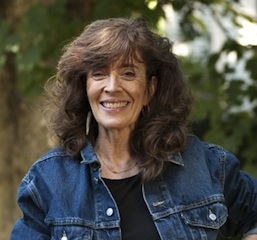The death of a close friend is extraordinarily painful, made that much more difficult because bereaved friends typically evoke little sympathy and support. This occurs even when the emotional connection between two friends is as strong as the bonds between siblings, spouses or partners.
Aside from cultural traditions, one reason may be that friendships are such intimate, private and inexplicable attachments that they often defy rational understanding by outsiders. It's easy for someone who doesn't grasp the nature of a very close friendship to either be inattentive or even dismissive of the magnitude of such a loss.
Pulitzer Prize-winning author Gail Caldwell's beautiful book, Let's Take the Long Way Home: A Memoir of Friendship (Random House, 2010), breaks new ground in allowing readers to understand the depths of a close female friendship and the pain associated with a sudden and untimely loss. I previously wrote about Gail's book in an earlier post here but I was pleased to follow-up with some email questions with the author.

Irene:
Any woman who reads your book has to be envious of the close bonds you shared with Caroline. What role did the parallels in your lives--e.g. recovery from alcoholism, love of animals, being writers--play in your ability to connect so intimately?
Gail:
Oh, I think those parallels were essential, or at least very important. Particularly the dogs! We connected so profoundly over and through our love for Clementine and Lucille, and theirs for each other, that it was the initial glue of the friendship. The other parallels - a drinking history, a solitary writer's life - were revealed more slowly, but probably had a great deal to do with our understanding of each other.
Irene:
I believe there was a nine-year age difference between you and Caroline. How did that affect your relationship? Was it something that you and Caroline were conscious of? Looking back, did it enhance, detract, or make no difference at all in your relationship?
Gail:
Certainly the age difference never detracted, probably because we were both in that midlife stage - old enough to be smart, young enough to be strong - that I tend to think of as women's finest hour. And Caroline was so psychologically sophisticated, emotionally mature, that she never felt "younger" in any way that would be distancing. We probably played out a lot of the big sister/ little sister dynamics that any good friendship explores.
Irene:
You talk about the two of you being "moody introverts?" How do you think that personality archetype affects a woman's ability to make and keep friends?
Gail:
I don't know that it affects it in any way other than being a good selective tool. A moody introvert is probably not going to be drawn to a perky world-traveler who never gives yesterday a thought - any more than the world traveler would want to hang out with an armchair brooder! Friendship is such a complex mosaic; we are all drawn to one another for myriad reasons.
Irene:
When a woman tragically loses a husband, the men that follow in her life are often threatened that they'll never live up to the ghost. Do you worry that your book will make it daunting for any other women to get close to you?
Gail:
I seriously doubt it. I suppose there's always a mythology present when someone is conscious of a past love who's now gone. But grief teaches you, if you listen, how to incorporate the loss and keep it as part of you, not shut the door on the future.
Irene:
How did other female friends react to the publication of the book? Were they jealous? Would you have been able to write such a book if Caroline were alive?
Gail:
No to both questions.
Irene:
How do you think your loss affected your ability to befriend afterwards? Could you ever connect with a woman (or man) who isn't passionate over dogs?
Gail:
I think loss often presents the vast kindnesses of other people. In my case, I was surrounded by a lot of love and support, and I let all that in. I have friends of both genders who are not as passionate about dogs as I am, but the inner circle -- well, there are probably leashes in most of their houses.
A former chief book critic of the Boston Globe, Gail Caldwell is also the author of A Strong West Wind and was awarded the Pulitzer Prize for Distinguished Criticism in 2001.
Follow The Friendship Doctor on Twitter.